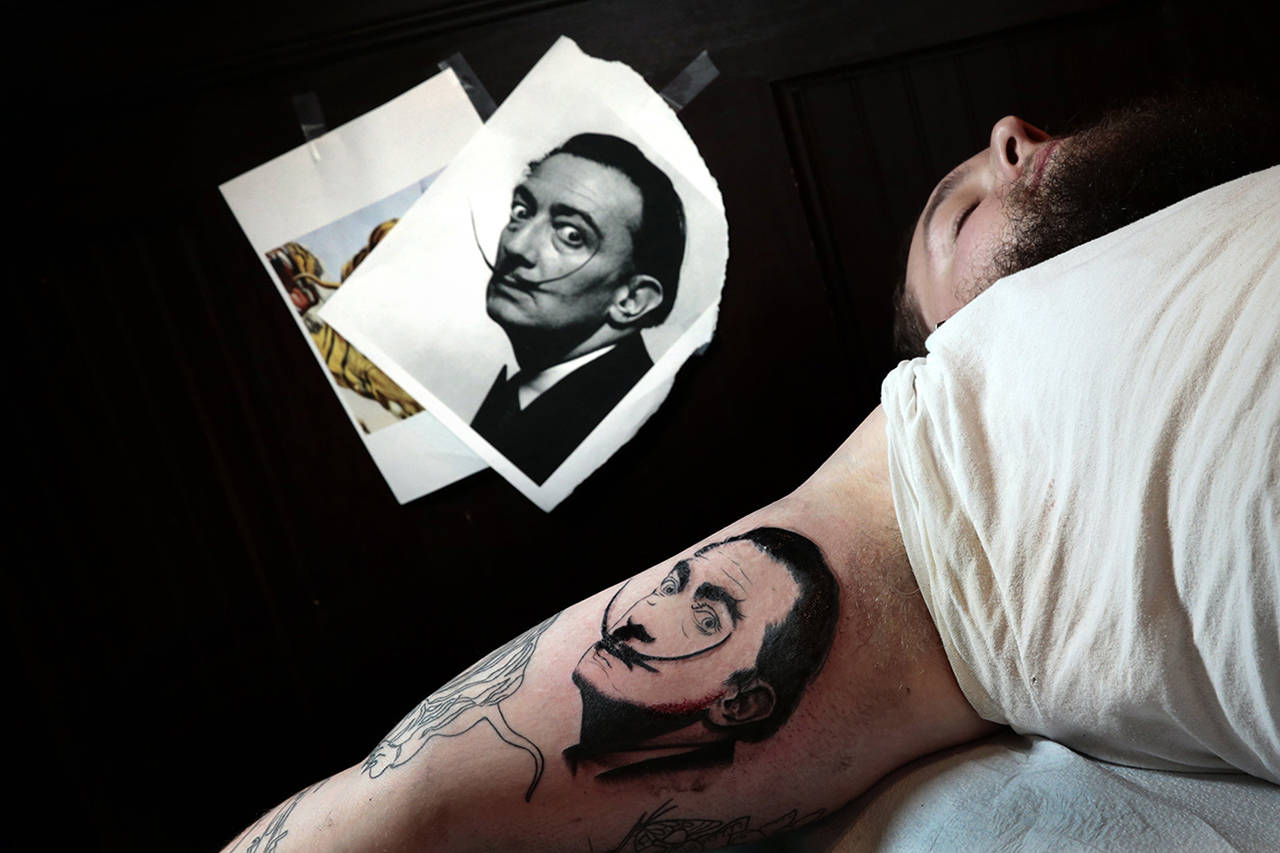By Amanda St. Amand
St. Louis Post-Dispatch
ST. LOUIS
Artist Micah Richter will tell you this is about his busiest season of the year. If he’s not drawing a design, it’s likely he’s inking it onto a person’s skin at Integrity Tattoos in Belleville, Illinois. Richter has been a tattoo artist for 20 years.
“It’s the same thing every year,” he said. “Most of the people say this is the only time they get a big chunk of random money. They call it free money.”
So how big of a splurge do customers want? It depends. Richter said some people come in and spend their entire return; others come in for something small. But they do show up, and some of them are returning customers.
“I see people on an annual basis,” he said.
Some of the customers at Integrity Tattoo tell Richter the same thing: They use all their Christmas money, but wait for their tax returns to get fresh ink.
“It’s a common thing,” he said. “It happens all over the country.”
Andrew Alvarez, 22, got his first tattoo last year when his tax refund check arrived. Inked onto his body is the quote “We define ourselves by the best that is in us.”
Alvarez said he decided to get one after talking to a friend at school. “He had just gotten one, and I had a little extra money so I decided to do it.”
Since then, he’s added two more tattoos, the most recent a design for his tricep that says “Carpe Diem.” He may get more in the coming months and years, but it’s dependent on time and money.
Across the river at Gateway Tattoo Studio in Arnold, Missouri, owner Elliott Groth is booked solid for about three or four weeks. And yes, it’s income tax refund-related.
“It’s human nature: If you get handed a lump sum of money, you start spending it on the stuff you’ve been putting off or wanting to get, but you didn’t really have the money,” he said. “Disposable income is a wonderful thing for our business.”
For the five years Groth has worked as a tattoo artist, he said, income tax season has been a boon for business. New customers, repeat customers, people finishing up elaborate tattoos — they all come in when the refund arrives.
While his shop does tattoos of all sizes, most of the business this time of year is medium- to large-scale work. Many of his customers spend between $300 and $500 for elaborate tattoos, “but there are tons of people who spend $1,200 to $1,400 on a single session,” he said.
At All City Tattoo in St. Louis, artist Megan Indelicato said it’s a similar story.
“They’re getting four or five at a time,” she said. “Buying for themselves, their significant other, their cousin. It’s their combo pack.”
Any sense of stigma has long faded. A Harris poll of more than 2,200 U.S. adults in October 2015 found that nearly three in 10 Americans have at least one tattoo. And seven of every 10 people who are inked have two or more of them.
The same survey found nearly half of millennials had tattoos, with more than a third of Gen Xers saying the same. That’s compared with only about 13 percent of baby boomers.
“Now it’s starting to be kind of weird if you don’t have at least one,” Groth said.


